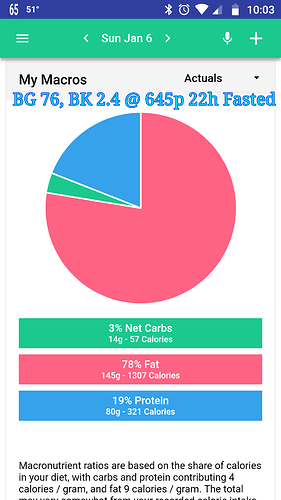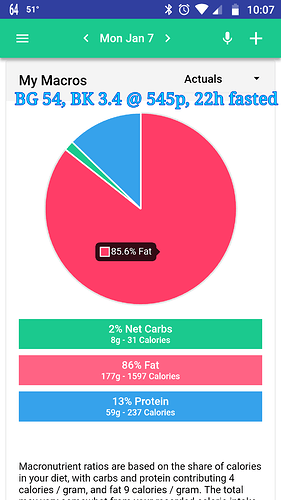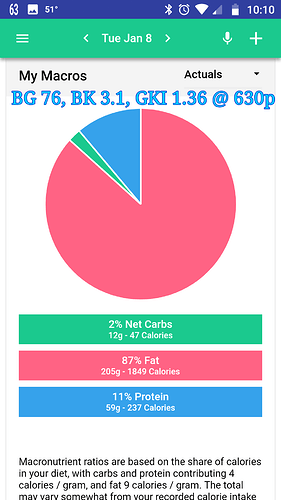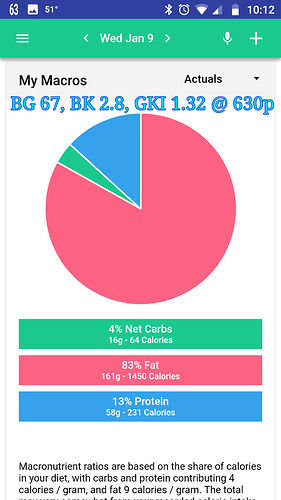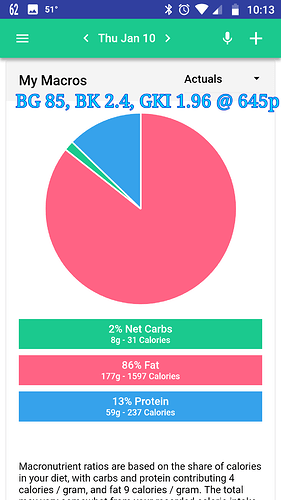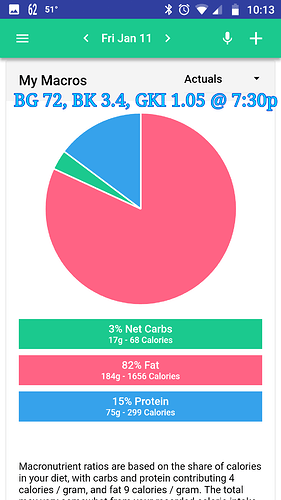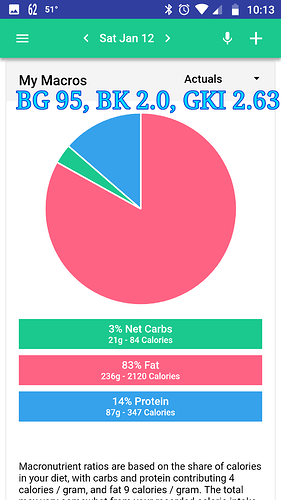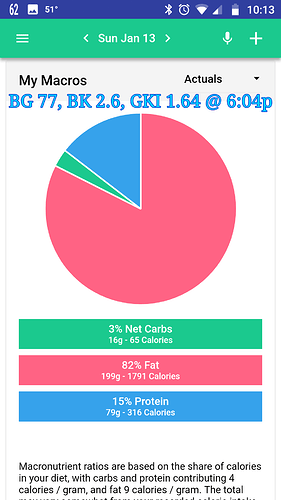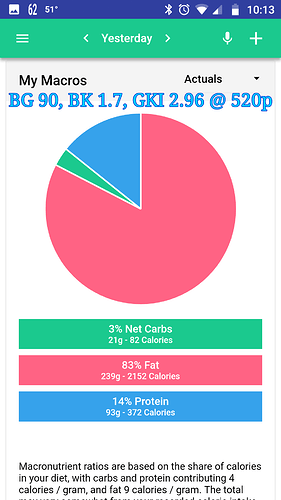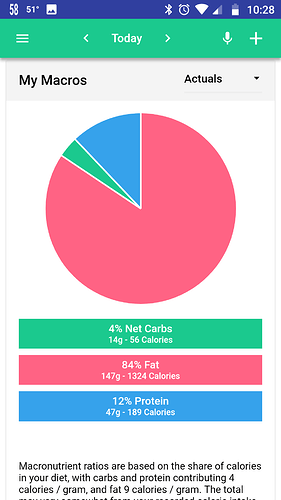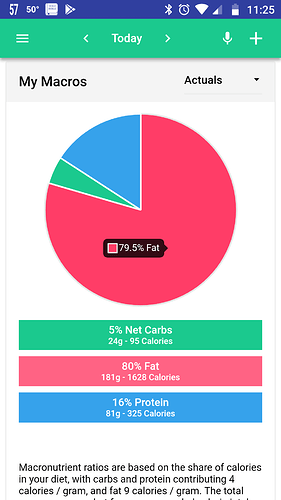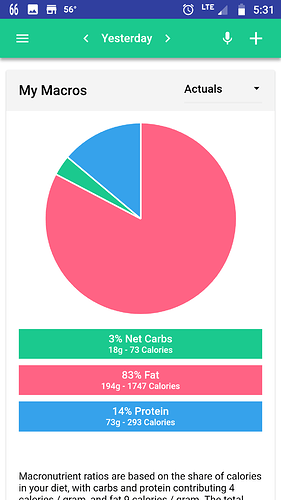So I’ve been trying to figure out how amounts of protein effect my numbers. This isn’t perfect, but here are some snapshots. Most of these have been OMAD.
My n=1 and protein amounts
Amy Berger wrote an interesting article about protein. In it she says:
Don’t confuse a rise in blood glucose with gluconeogenesis. Protein we eat doesn’t automatically and instantaneously become glucose.
In the same way that ketosis doesn’t happen just because someone eats a lot of fat, gluconeogenesis doesn’t happen just because someone eats a lot of protein.
If your blood glucose rises after a high-protein meal, it’s not because the amino acids you just ate have “turned into sugar.” It’s the glycogen being released by your liver, under the influence of glucagon. It’s your liver, doing exactly what your liver is supposed to do when you eat protein.
She goes on to say that GNG is demand driven, not supply driven.
In summary, Exactly how protein impacts blood glucose is controversial but if you don’t have diabetes, the rise in BG after eating protein is from glucagon signaling your liver to release glucose back into your system, when it determines your BG level is too low. The rise in BG is not coming directly from the protein you just ate.That protein may take between 2 and 10 days before it’s converted into glycogen and stored in the liver for future use. Glycogen and glucose are fairly interchangeable. It mainly depends where it is (liver or in the blood).
I won’t pretend to fully understand the mechanisms that drive our blood sugar low after eating but I do know that if the liver is not working properly and does not increase our BG at this point, we risk going hypoglycemic.
My problem it’s that I’m trying to keep my GKI low. Most of those readings are 22-24 hours apart, while eating OMAD. Exceptions were on the 12th and 13th, when I had some lunch.
The higest GKI you posted is 2.96. Isn’t this good?
- Anything above 9 means your body has not transitioned into a fat-burning state.
- A 6-9 GKI demonstrates a low level of ketosis: This is appropriate for those who want to lose weight or maintain optimal health.
- A 3-6 GKI demonstrates moderate levels of ketosis: This is appropriate for addressing many common metabolic diseases including insulin resistance, Type 2 diabetes, or obesity.
- A less than 3 GKI is a high level of ketosis: This is typically used for addressing epilepsy and cancers. Entering this high level of ketosis periodically each year can be beneficial for anyone hoping to use ketosis for disease prevention.
I thought that a GKI of 1 or less was ideal for people with cancer…
Ah now I understand and now I remember your situation. According to perfectketo.com less than 3 is typically used for addressing cancers. I can totally understand why you want your BG as low as possible.
I did find this blog about GKI to fight cancer and it did use 1.0 as a reference. In his notes he says that mct and coconut oil helps raise ketone leveles, but your GKI looks better than his:
1. The first study involved 2 children with brain cancer. During 8 weeks on ketogenic diet, their GKI dropped from 27.5 to .7 in one patient and 1.1 in the other patient. The children maintained that for the entire 8 weeks and had no chemotherapy. Both patients went into remission – and remained in remission up until the time of publication – which was 4 years for one and 5 years for the other.
http://www.cansurvivecancerdiet.com/my-story/1a-ketogenic-diet-update-what-i-continue-to-learn/
And another site that says to get closer to 1, EF is recommended:
Now we’ve learned what Dr. Seyfried calls “therapeutic ketosis” — where it’s optimal to have a GKI of under 1 — and this is achieved through at least three days of fasting up to five days or more, ideally water-only, a way to “blast the crap out of incipient tumors.”
I truly and sincerely hope this helps you Rebecca.
Thanks for your input!
I don’t know exactly how much body fat I have, but I don’t really have a while lot to spare. I’ve been doing 22 (or so) hour fasts.
I’m 5’ 2" and weight around 118lbs, as of last check.
I wish it were easier to keep my BG/BK levels stable. Even with OMAD BG can range from 70s to 95. BK also ranges from 1.3 to 3.5.
Wish I knew what to do besides eating the same thing over and over. Plus I cook for others and they don’t like all the same things I do.
Had a good meal last night
My before meal (Feb 2) numbers were excellent!
BG 68, BK 4.8
5 hours after eating
BG 103, BK 1.8
I’m looking forward to testing tomorrow.

